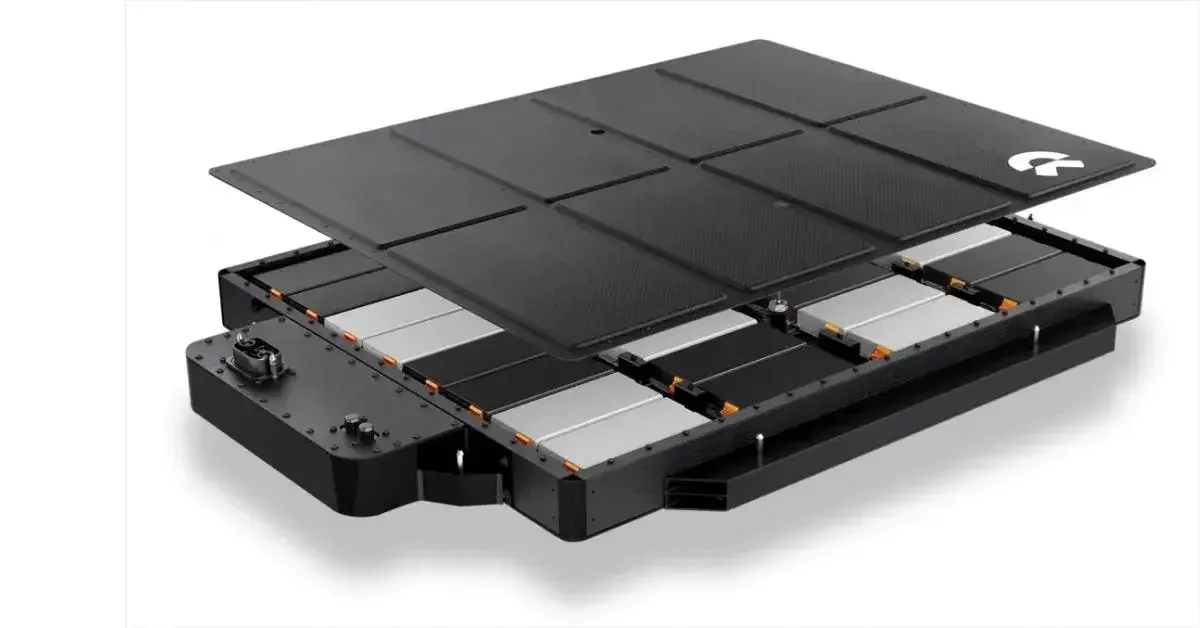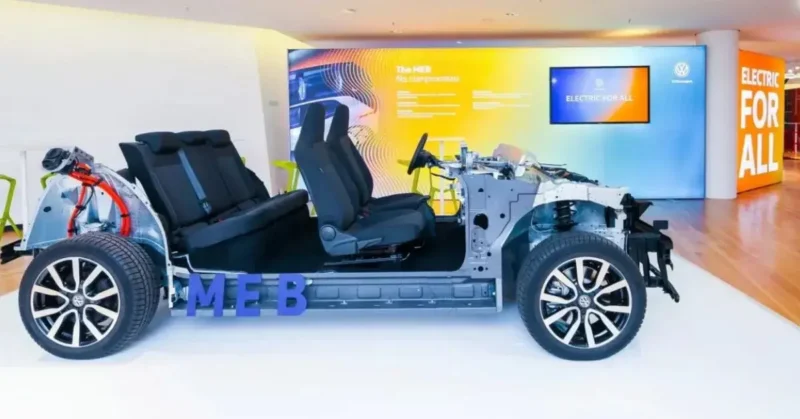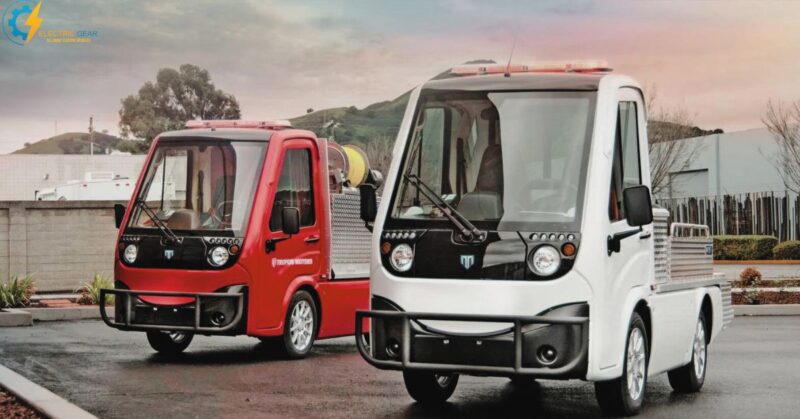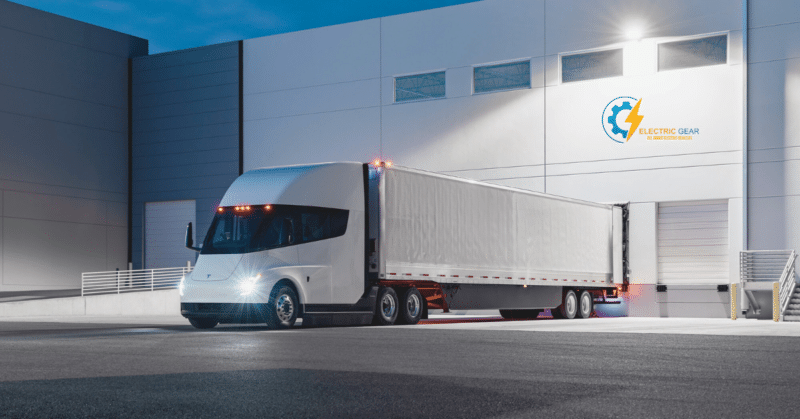The world’s future is electric, and governments worldwide are leaving no stone unturned in formulating policies to decarbonize the climate through their efforts to go green. After centuries of association with ICEs, An entirely new transition is awaiting, predicted to be cleaner and greener. In this article we will explore What Are Electric Car Batteries Made of? and about Li-ion batteries.
What are Electric Vehicles Batteries Made of
More than 150 million(some other sources predict 190 million) EVs will likely be on the road by 2030, according to the IEA report. EV automakers are far more eager than ever to enhance efficiencies and remove EV owners’ concerns regarding various EV-related issues.
Tesla is the forerunner of introducing technological advancements by shifting the auto industry into an electric one and considerably increasing mileage and battery pack efficiency. Talking about the battery is of utmost significance because the battery is the pivot of all EV performances, unlike ICEs.
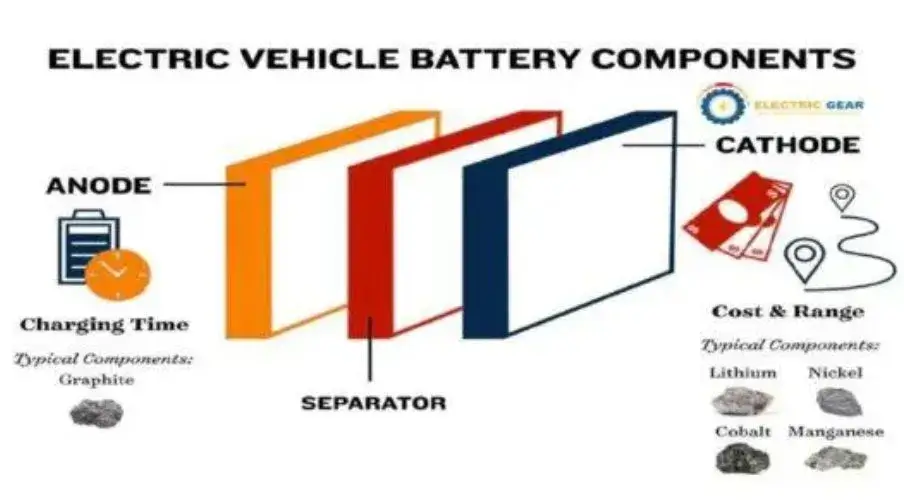
People want to know more about EVs before buying, so their battery always gets maximum momentum while searching for queries about electric vehicles.
They usually think about what are electric car batteries made of. It is one of the main elements in electric vehicles and is considered the ‘lifeline’ of EVs. Electric cars are no longer without batteries; they run on a charged battery. When the battery stops working, the vehicle won’t be able to run anymore.
Electric vehicles use rechargeable batteries to power their motors. Batteries store energy in chemical form, which later is used to create electricity to empower the motor in the vehicle.
What Are Electric Car Batteries Made of? Materials Specifically
In EVs, battery packs comprise thousands of cells with electrons to manage the charging and discharging. Various expensive raw materials make EV batteries more structured to get maximum mileage. Base metals like aluminum, iron, and copper are the main ingredients. In contrast, ‘precious metals’ like manganese, nickel, and cobalt are expensive and are used in these batteries in the least quantities.
There is a reason why EV batteries are expensive. The materials used in EV batteries are hard to find everywhere, and once discovered, it’s mined expensively from the earth. That’s why the battery of electric vehicles is costly.
The Function of Battery in Conventional Cars vs. Electric Cars
The battery is essential for both gasoline-powered and electric vehicles. But it functions differently in both vehicles. The battery is the engine of an electric vehicle, while it only starts the conventional vehicle engine.
The battery in an electric car runs every component, in contrast to the batteries in conventional cars. In gasoline cars, the battery gives the engine enough power to start and power components such as air conditioner and radio.
Types of Electric Vehicle Batteries
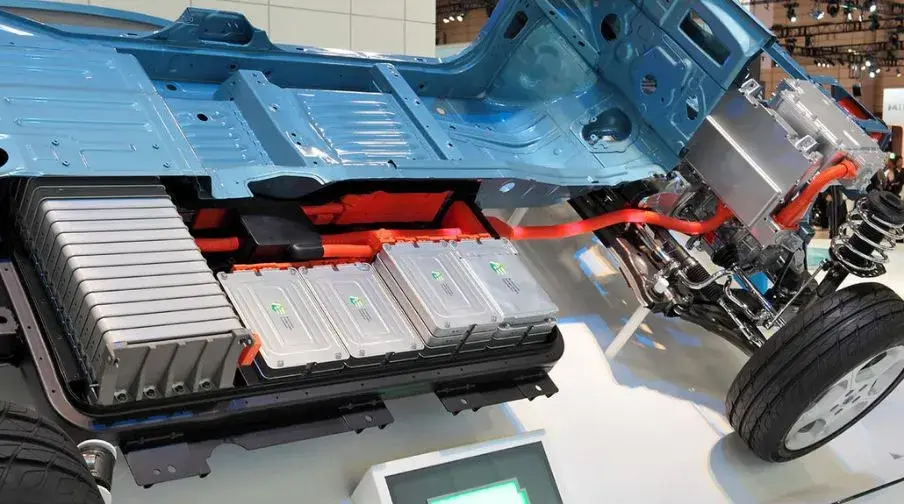
There are two main types of batteries in electric vehicles.
- Lithium-ion Batteries (Li-ion)
- Nickel-Metal Hydride Batteries (NiMH)
Lithium-ion Batteries
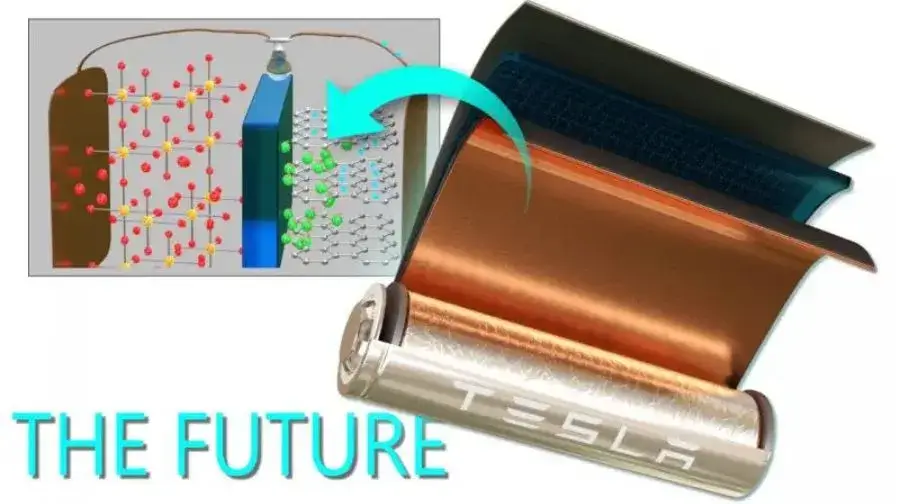
Lithium-ion batteries are mostly found in EVs. These are also found in our mobile phones or laptops. These batteries are rechargeable as batteries in EVs.
Lithium ion is used in these batteries, and when a battery is discharged, it moves from the negative electrode to the positive via an electrolyte. When a battery is recharged, it moves back again. A lithium-ion cell’s negative electrode is typically composed of graphite, while its positive electrode comprises an intercalated lithium compound.
Functions of Li-on Batteries in EVs:
The main function of lithium-ion batteries in electric cars is to supply power to the electric motor. Besides that, it has several other functions to perform, including AC, heating system, radio, lightning, and other electrical features of an electric car.
Why Are Lithium-ion Batteries Used in Electric Vehicles?
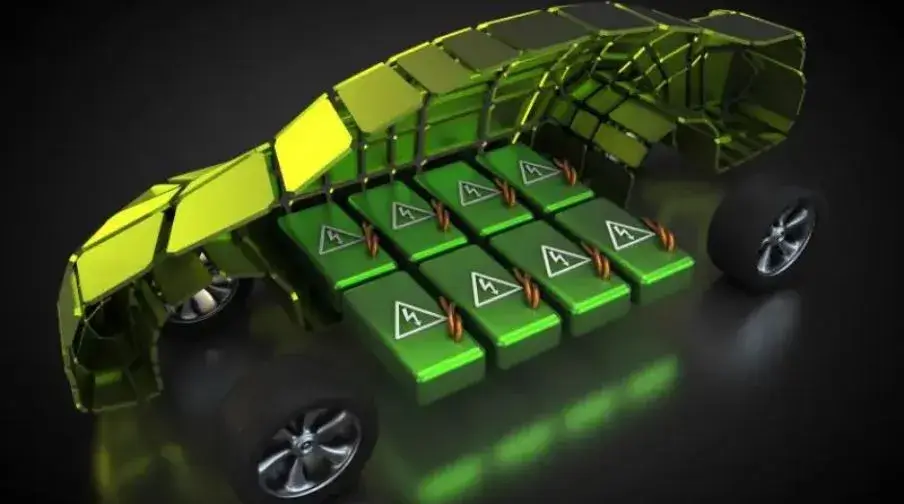
Li-ion batteries are used in EVs for several reasons:
- It has a strong power-to-weight ratio.
- It has excellent energy efficiency.
- Its high performance is unparalleled.
Main Components of Lithium-ion Batteries
Li-ion batteries largely consist of four main components.
- Electrode: It helps move lithium ions between the cathode and the anode.
- Cathode: It is the positive electrode that helps in determining the battery capacity.
- Anode: It is the negative electrode that helps in releasing and storing lithium ions.
- Separator: The separator is between the cathode and anode, which keeps both apart. It also ensures the safety of the battery.
Advantages of Lithium-ion Batteries
- In terms of energy density, Li-ion batteries are the best. These have maximum energy density as compared to other batteries found in EVs.
- Smaller and lighter
- Charged more quickly
- They require less maintenance to maintain their performance.
- High voltage
- Battery longevity
- Lower energy use
Disadvantages of Lithium-ion Batteries
- Costly as compared to nickel-metal Hydride batteries.
- High voltage can harm lithium batteries because they tend to overheat.
- Safety measures such as cooling to regulate voltage and internal pressures.
- Unable to carry out multiple functions.
- It may lose capacity and stop working after a period.
Nickel-Metal Hydride Batteries
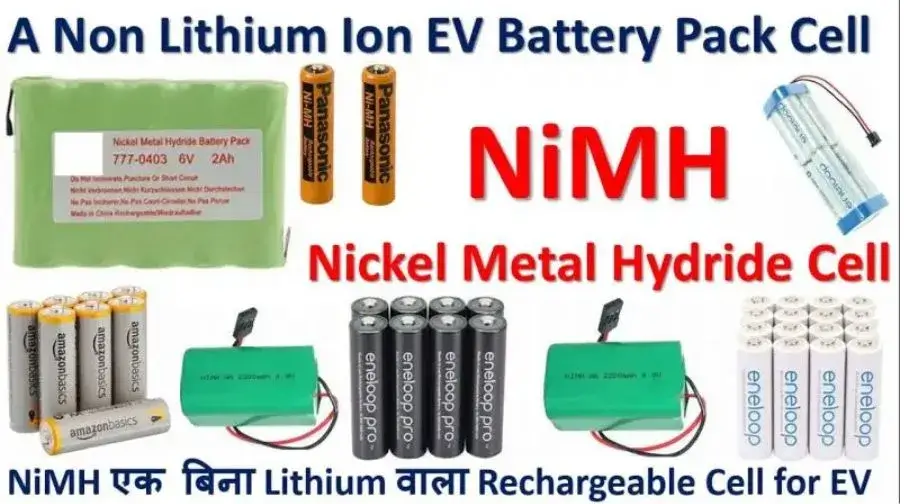
NiMH batteries are found mostly in hybrid electric vehicles. The only effective substitute for lithium-ion batteries is nickel-metal hydride batteries. Compared to lithium-ion batteries, NiMH batteries have an energy density of up to 40% lower.
These batteries have no external power supply for this hybrid electric vehicle battery. Regenerative braking, wheels, and engine speed determine how quickly hybrid electric car batteries are charged.
Lithium-ion and conventional car batteries are less durable than NiMH batteries in terms of life span. Incorrect usage is not harmful to NiMH batteries.
Advantages of NiMH Batteries
- Excellent power output
- Effective even at low temperatures
- Resistance to overcharging and discharging
- These are Non-toxic
- High recovery rate.
- Friendly to the environment.
Disadvantages of NiMH Batteries
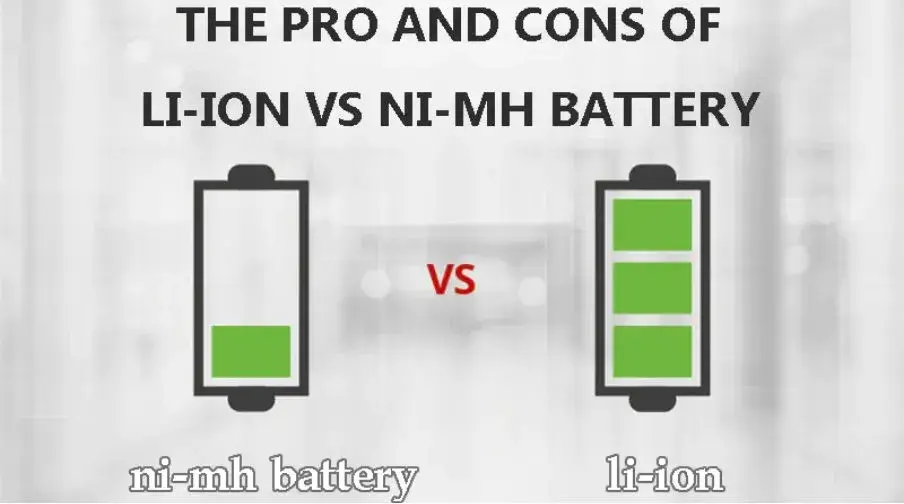
- The cost is noticeably higher.
- Produce a massive amount of heat at high temperatures.
Because of the downsides mentioned above, NiMH battery is less suitable for electric vehicles whose batteries must be recharged from an external source.

Imran is an experienced content writer who crafts engaging and informative articles for a variety of industries. With a keen eye for detail and a passion for storytelling, Imran delivers high-quality content that resonates with readers. Whether he’s writing blog posts, social media content, or website copy, Imran is committed to delivering compelling content that drives results.

